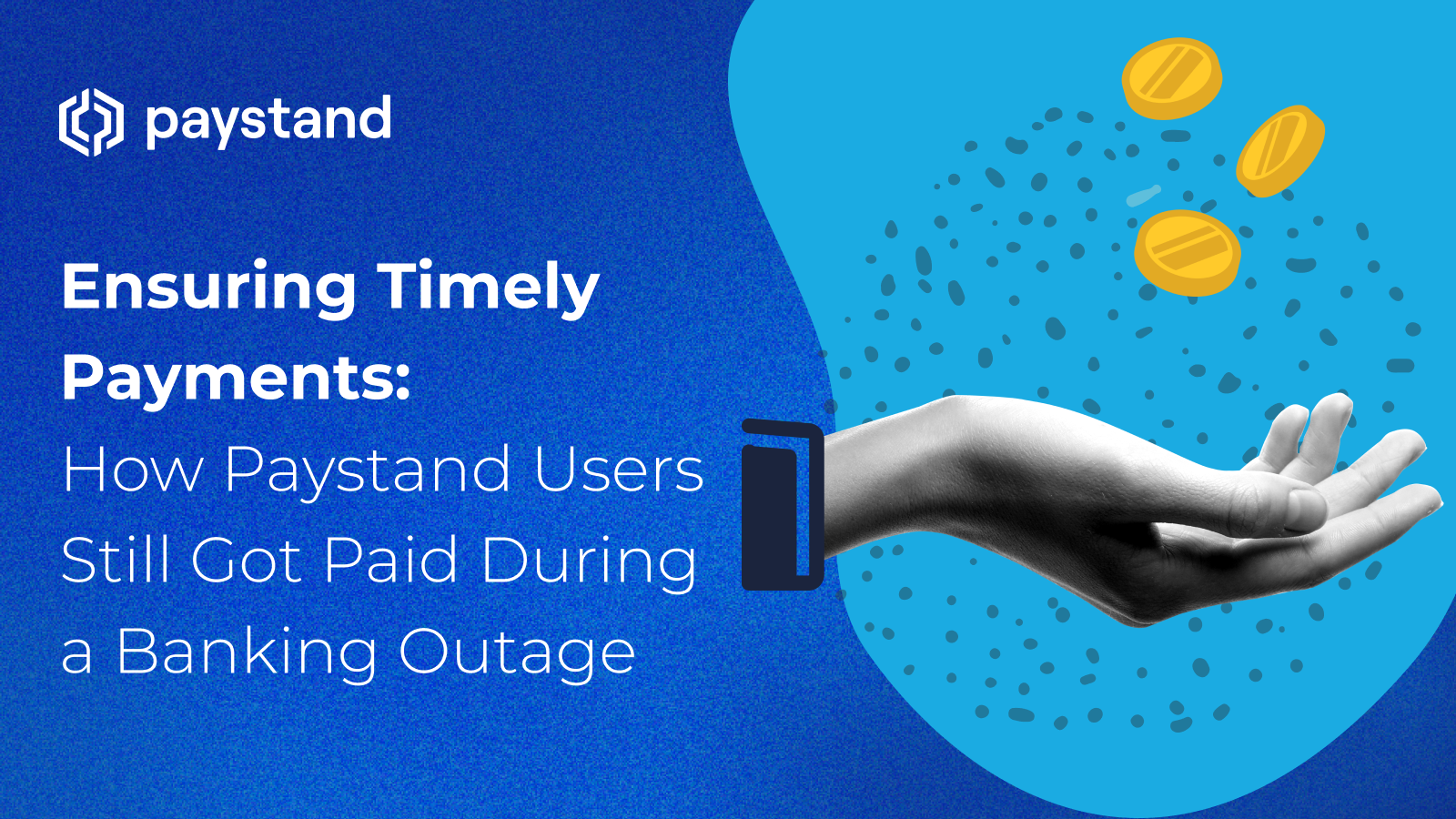Ensuring Timely Payments: How Paystand Users Still Got Paid During a Banking Outage

Last Friday, most banks in the United States were affected by a failure that left thousands of people unpaid nationwide. Bank of America, Wells Fargo, and Chase, among others, reported delays in more than 850,000 deposits, which is alarming for individuals and businesses that depend on timely payments. According to The Federal Reserve, this was due to a "processing issue.”
An error at The Clearing House, a U.S.-based limited liability company owned by the largest commercial banks, disrupted ACH-processed transactions. This ranged from direct deposits to mortgages and utility bill payments. According to NACHA, The ACH Network processed an average of $330 billion daily in September.
Many customers have since complained to their banks for not communicating clearly about the delayed deposits.
What Does this ACH Banking Outage Mean?
There are three key points to consider:
1. The Importance of Payment Redundancy
Like any complex system, banking is susceptible to glitches, errors, and outages. This incident is a reminder that diversifying payment systems and having backup options is critical for business continuity.
Payment redundancy is essential for businesses relying on digital payments. Any interruption in payment processing can lead to financial losses and damage the company's reputation. By having redundancy in place, businesses can provide customers with operational security.
2. It Was Not a Cybersecurity Issue
Greg MacSweeney, a spokesperson for The Clearing House, confirmed that "a manual error caused the problem" and was not linked to a cybersecurity issue. It’s crucial to highlight this because disruptions can lead to cyber-attack fears in an age of rising cyber threats. While this is not the case, businesses should be vigilant and ensure their payment systems have robust cybersecurity measures.
Unfortunately, the error arose internally this time, giving rise to doubts about how these processes are being carried out and how to avoid errors.
3. Immediate Repercussions for Users
Although many banks have ensured that deposits remained safe and the glitch was introduced by human error, the delay caused significant concerns. Social media was abuzz with frustrated users, questioning the banks about their money and any potential late fees they might incur.
Wells Fargo stated on X that “technical teams are aware and working to resolve this issue as quickly as they can.”
@KenPaxtonTX what can be done to protect timely receipt of my direct deposit paycheck? @BankofAmerica is non-compliant with regulations and it's impacting Texas customers. pic.twitter.com/dGcTy0sO3N
— Steve Nickman (@StevieT87) November 6, 2023
So, the direct deposit issue from Friday won’t even be resolved by Tuesday @BankofAmerica??? Unbelievable… pic.twitter.com/dr7Q75pWtn
— LOCK👏🏾HIM👏🏾UP👏🏾 (@Been_Woke80) November 5, 2023
Companies need to be more prepared for crises. New financial models, away from the possibility of human error, must be considered for payment processes.
How is it that @WellsFargo is missing on delivering our earned money via direct deposit and their answer is “we don’t know when it will be fixed but are aware of the problem”????
— Michelle Conner (@Littlefayx3) November 3, 2023
How Paystand Users Still Got Paid
Paystand's mission has always been to revolutionize the B2B payment landscape. We saw a need in the market for a faster, more reliable, and cost-efficient solution that doesn't depend on the traditional banking infrastructure. This recent incident with ACH delays underlines the benefits of our approach:
- Not Reliant on Traditional Banking. Paystand's most relevant advantage is its technology relies on something other than traditional banking infrastructure. So, while many businesses faced payment delays because of the ACH system's error, our users of the Paystand Bank Network can still be paid without delay.
- Rapid Time-to-Cash. By bypassing the slow and outdated banking systems, Paystand speeds up the time-to-cash, ensuring your business’s liquidity is not compromised.
While the banking system remains integral to the global financial infrastructure, businesses need to diversify their payment solutions. Reliance on a single system can lead to unforeseen disruptions.
With Paystand, businesses have a reliable alternative ensuring efficient, uninterrupted operations. No matter what eventualities the banking system might face.




